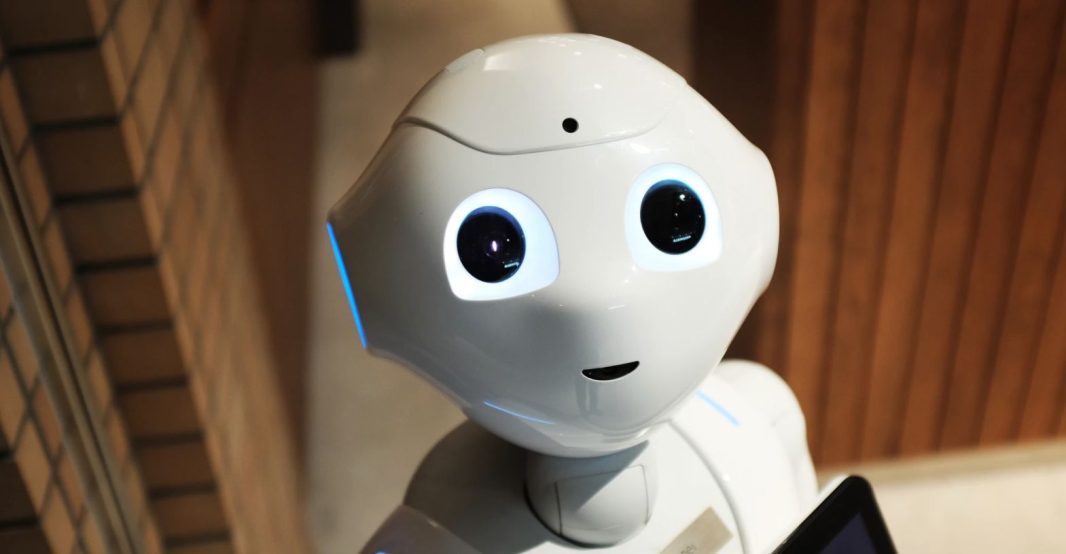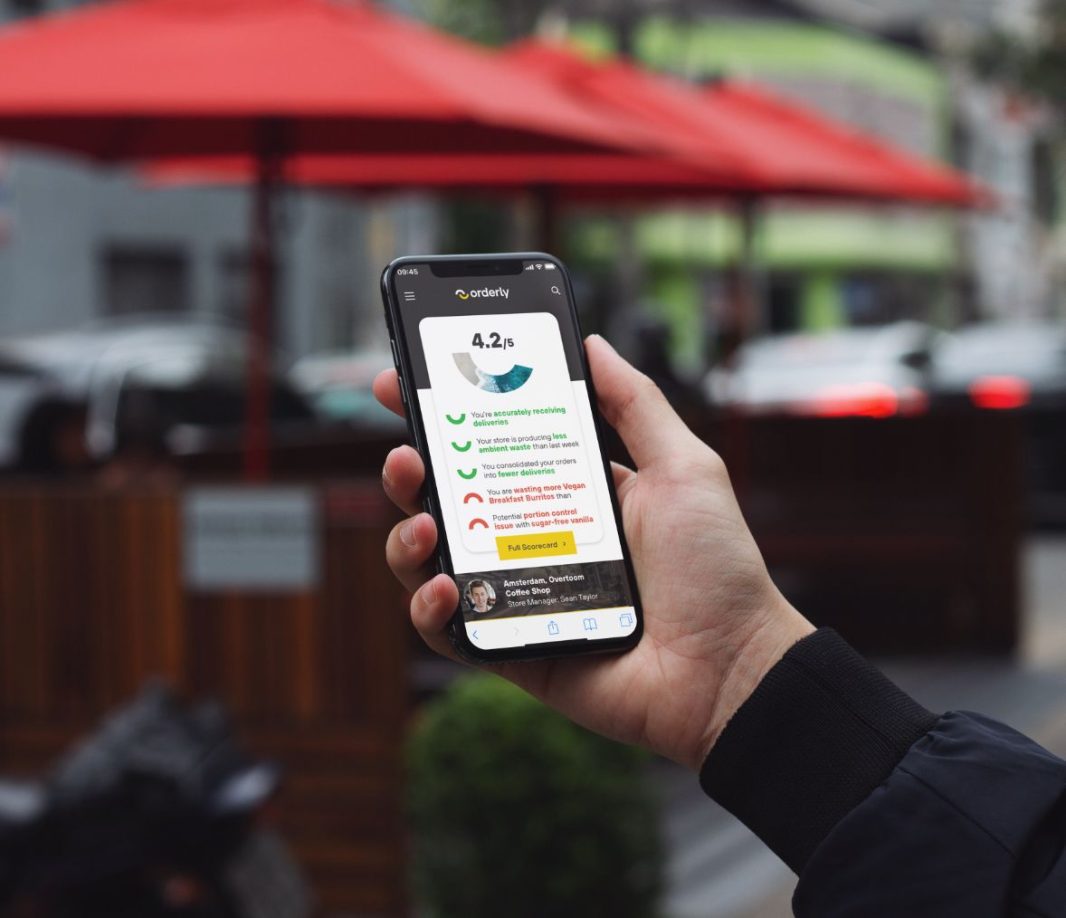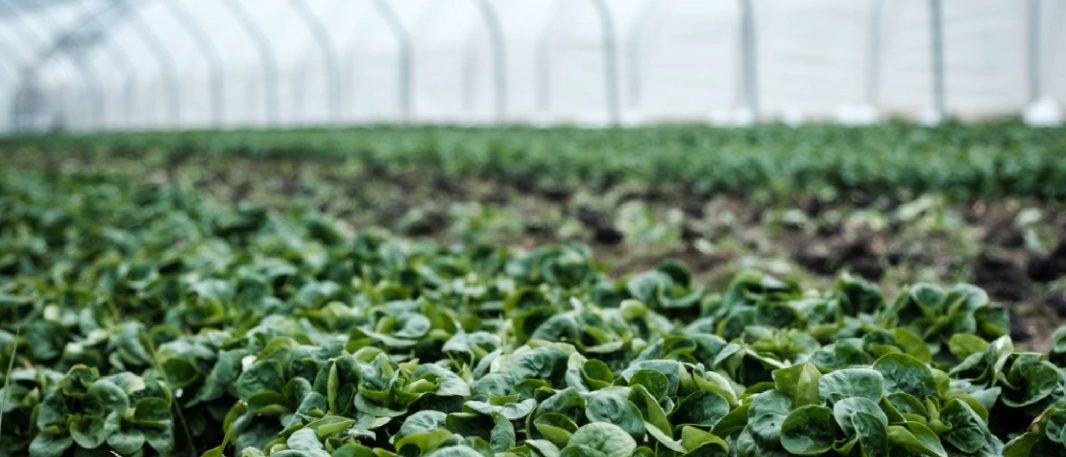At Orderly, we are champions of sustainability. We believe that by making improvements in order management, forecast management and inventory management using the best digital tools – the results are increased profit and improved environmental sustainability impacts by reducing the use of unnecessary food, packaging and associated waste. Here’s how.
We believe that every small change delivers incremental results, which is why we have created this ‘good news’ section, showing some inspiring stories around sustainability improvements. We’ll update this with more great news as it comes in.
To submit your great news, simply email [email protected]
Food
Orderly works directly with leaders in the food industry space to improve their value chains. Nutrition, as one of the three most crucial life-sustaining commodities, food sustainability is a global concern. Our very lives depend upon it, and for some time now, we, as human beings, have been aware that our ‘normal’ dietary way of life is not kind in its nature to the environment. From our use in plastics and other waste materials to our over-use of the land and its nutrients, change is inevitable.
We might like that change and go along with it willingly through rethinking and innovation, or we might be forced to attend the party too late in the game. Either way, we are being backed into the corner of choice to make that imminent decision. What is it to be: action or reaction?
Such innovators as Asda in conjunction with Kbox Global, Selfridges, and Whole Foods are walking willingly into the creation of a sustainable tomorrow with their changes today. Read on.
Asda launches vegan counter and expands vegan range
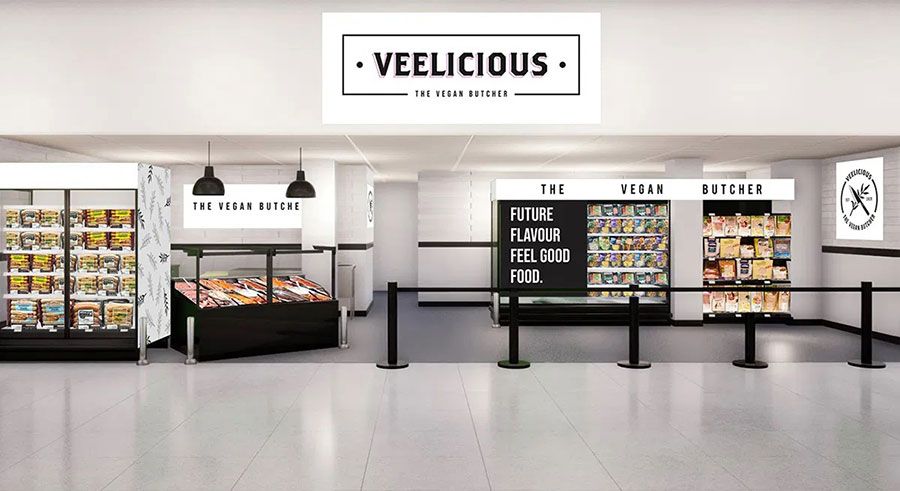
Asda expands its plant-based food range with 22 newly launched products and has partnered up with concept creator Kbox Global to launch a vegan butcher counter named Veelicious. Read story
With such inclusive movements as Veganuary and flexitarianism, meat-alternative foods are becoming a mainstream, every-home option, with yummy choices for every palate and every plate.
Vertically grown food now for sale at Selfridges and Wholefoods
Along with the realisation that farming animals produces less food than the nutrients and energy it consumes in the process, vegetable farms are a more productive and sustainably viable option. And vertically grown food sources provide more versatility for vegetable growers. Two grocery giants have picked up this torch.
Selfridges and Whole Foods are now offering vertically grown food in-store. Because vertical farms typically stack several layers of produce on top of each other, this reduces the amount of space needed to grow fresh fruit, vegetables and grains coupled with low-carbon heating and energy-efficient LED lighting. That’s good thinking!
Tech
But sustainability must flourish globally and within every industry and business to protect our planet’s future. Ways the tech industry is contributing:
Oxford University students create Carbon Codes, a start-up to help others eat sustainably
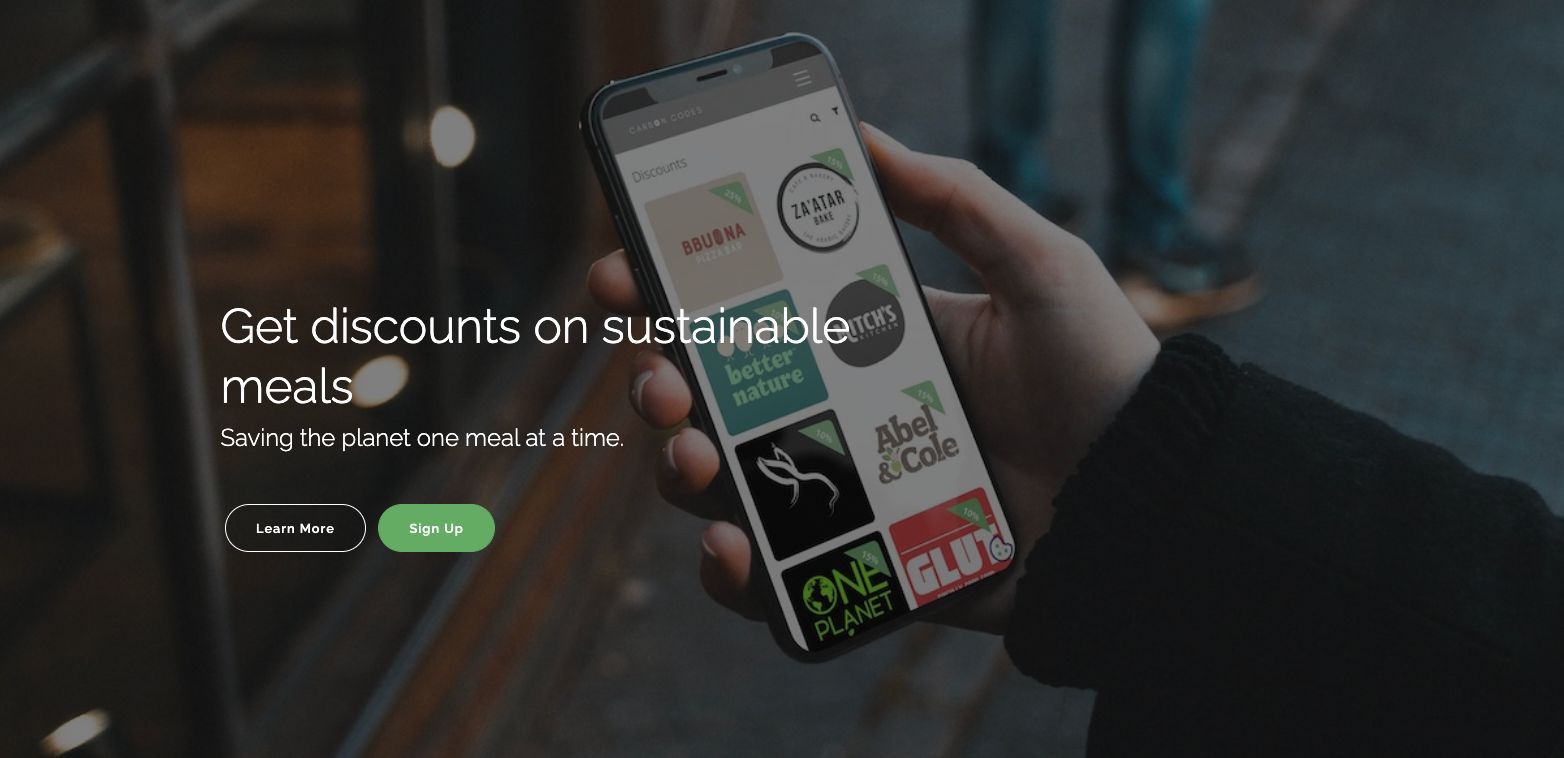
Carbon Codes provides discount codes for local restaurants that provide sustainable meals and for online businesses that sell sustainable food items. The website also provides sustainability guidelines which explain how meals can be both affordable and sustainable. Nice job! View site
First flight of hydrogen-powered plane taken
UK-based scale-up Zero Avia completed the first flight of a commercial-grade, hydrogen-powered plane. The model can only carry six passengers but there are hopes the technology could be scaled up; in fact, the Government recently allocated £12.3m to help the development of a 19-seater model. So it seems like it’s only a matter of time for hydrogen-fuelled commercial airlines to be a reality. Awesome innovation!
Unilever working hard to reach zero-deforestation targets
An edie article reports, “Unilever is piloting new geolocation technology in a bid to ensure it meets its zero-deforestation targets, which cover supply chains including palm oil, soy and paper and board.” Read more
Two of these products, soy and palm oil, are difficult to track from the original source because of the varied resource locations that come to one mill. Often these products are mixed in transit before even reaching the processing plant.
Unilever CSCO Marc Engel is confident that by combining Unilever’s current satellite imagery tech with Orbital Insight’s, and with the help of a collaborative network in the industry’s supply chains sustainable farming of palm oil and soy is attainable.
This technology “could improve the traceability of the ‘first mile’ of the supply chain.” Brilliant!
Clothing
The fashion industry is known for its ever-changing trends, and a wasteful by-product of disposable fashion is the unfortunate result. Earth would hugely benefit from the clothing trade going balls-out sustainable in circular-economy mode, like local brand Rapanui reusing its own product. Imagine if there was a life beyond the ‘end-user’—making this very term obsolete.
One clothing brand that’s on the right track is Hush with its SS21 Activewear collection.
Hush launches sustainable activewear collection made from recycled fabric
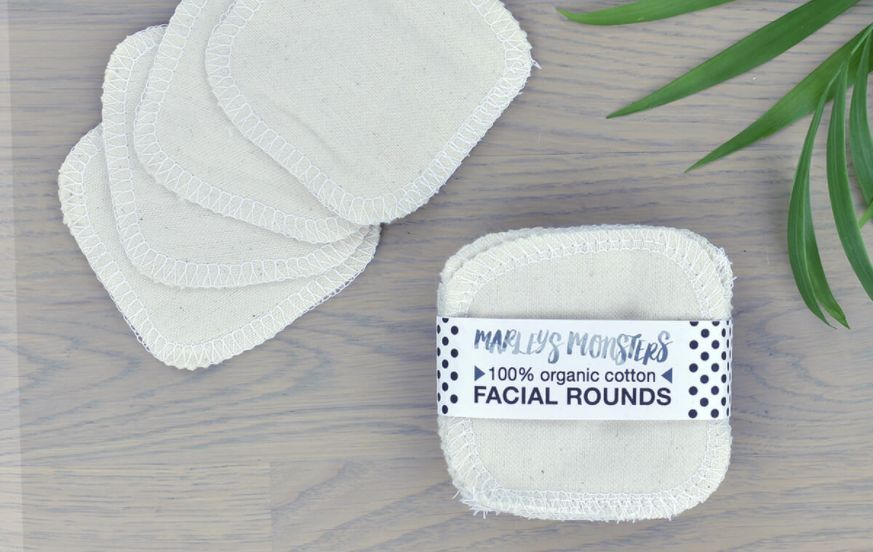
The range includes sports bras and leggings made from ECONYL, regenerated nylon created from recycled fishing nets, industrial plastic and recycled fabric, as well as vests made from TENCELTM Modal made from sustainably sourced beech wood. Read story
Hush realises it’s time to tackle recycled materials in the fashion world by taking items, like the fiendish fishing net, from outside their intended scopes and putting them to good use. Well done!
In conclusion
With COVID-19 forcing the world to shut down, supply chains and sustainability have been rocked, but we can’t let the virus or any potential intrusion push back our progression in these fields. Consumers are consistently becoming more eco-conscious and making ethical purchases. From purely a business standpoint, changing our brand models and company processes are a must for survival.
The word on the street is one behaviour gives birth to like-kind. If we change our environmental practices, others will too, either willingly or by necessity, to remain economically competitive in this ‘bigger than us’ life-sustaining movement.
We all must do our part, and we, at Orderly, believe in our universal tech of sustainable, scalable, smart order management, forecast management and inventory management to help the food industry to all industries in their local supply chain to the global supply chain make better economical strides toward the future. Find out more about how we can help.


